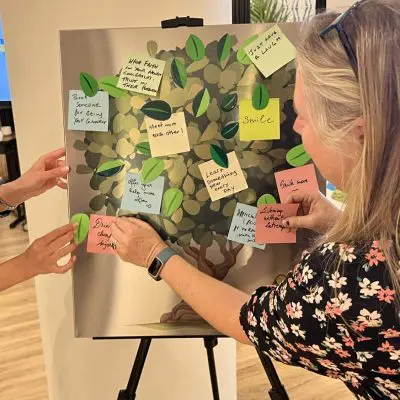The human desire for kinship, such as friendship or love, is almost universal in our species. This dates back to the early days of human evolution, where strong emotional attachments led to a higher chance of survival. Because of this, the need for companionship and interpersonal relationships developed as one of the most basic human physiological needs.
However, how we relate to other people, and how this affects our abilities to function in groups is something that is learned individually as we grow up. Our first encounter with groups and social relationships is, for most people, our families.
As we grow up, we are exposed to more people. Outside our immediate and extended families, we come into contact with our parents’ friends and coworkers, as well as other children in our neighborhoods and schools, and begin to grow our interpersonal relationships.
What is an interpersonal relationship?
Interpersonal relationships are social ties or connections between two people or more–usually family members, friends, students, coworkers, and others. Interpersonal connections help people develop a sense of belonging, sharpen communication skills, and improve their ability to work in a team setting.
How do interpersonal relationships affect group dynamics?
You may be wondering how these basic interpersonal relationships affect a team’s ability to work together. Simply put, the stronger the interpersonal relationships, the better the lines of communication between group members.
Strong interpersonal relationships help nurture a support system within groups. Imagine that all relationships have a certain level of emotional “carrying capacity,” or a limited amount of both positive and negative emotion that they can carry without feeling strained.
On the other hand, poor interpersonal connections at work can be a huge stressor for teams. According to the American Institute of Stress, 28% of work stress stems from interpersonal struggles. This leads to a toxic work environment, unhappy employees, and an unproductive business.
How can you improve interpersonal relationships at work?
If you are looking to improve your interpersonal skills at work to improve the effectiveness of your team and workplace dynamics, there are a few steps you can take:
1. Encourage empathy & open communication
If team members can’t show empathy with each other, they won’t be able to connect and understand each other. Set up recurring 1:1 meetings with team members to create bonds outside of daily work communication. Or, sending an email or message asking the simple question “How can I help you today?” can show your support to other team members. Our podcast guest Christie Turley explained this in a season 3 episode, “The Rise of Empathetic Leadership”:
“Being anchored in your own power and who you are and being connected with yourself actually helps you to connect better with others and how they might be feeling.”
2. Acknowledge & build your team’s strengths
Everyone likes to feel appreciated and acknowledged, especially regarding specific skills or strengths. If you are facing a challenging project or situation, ask the advice of a team member who you know is strong in that area. Additionally, it’s humans’ natural desire to want to learn and grow. Providing professional development opportunities can allow your workers to grow their skills and their confidence. Offering training sessions for human skills such as communication, teamwork, and leadership is a great place to start.
3. Foster a positive workplace culture
If team members do not feel like their wellness is a priority or their boundaries are being respected, their morale drops drastically and it will be harder for them to nurture interpersonal relationships within their work environment. Take steps to improve your workplace culture by reevaluating work-life balance, encouraging socialization and cross-functional collaboration, and promoting diversity and inclusion to make sure all voices are heard in the workplace. And like Tedx Speaker Scott Asai told us in a podcast episode about soft skills for leadership, your employees will always gravitate towards a positive workplace–whether it’s your or your competitor’s.
“Someone who’s your employee could become your competitor’s employee really quickly because they’ve created an environment that people are more attracted to.”
4. Schedule team building activities
Make sure that you are scheduling team building activities that foster strong employee relationships. Whether you work at an office or are on a remote team, scheduling team building activities, such as charity events, field days, or escape rooms, is essential to growing and maintaining a healthy team dynamic. If your employees are comfortable with each other, interpersonal connections should be a piece of cake.
5. Lead by example
Anyone who leads a team should understand that their employees look up to them and often model the behavior they see. Make sure to lead by example so your employees are encouraged to convey respect, empathy and open communication with each other. Make sure leadership is approachable and available to discuss any issues or concerns employees might have. There’s nothing worse for interpersonal relationships than out-of-touch leadership. Kit Pang of BostonSpeaks said this best in our podcast episode about public speaking anxiety:
“So what I’m saying as a manager, how can you share examples of yourself? Maybe the last time you had perfectionism, the last time you felt imposter syndrome, the last time you got nervous speaking—your sharing will help your team share more too.”
The power of interpersonal connections at work
Fostering strong interpersonal relationships at work is not just a nice-to-have; it’s essential for creating a thriving, productive, and enjoyable workplace. So, take the first step today and start nurturing those connections. Your team—and your bottom line—will thank you for it.
Ready to strengthen your team’s relationships? TeamBonding has hundreds of team building events for you to choose from. Get in touch with us today!















